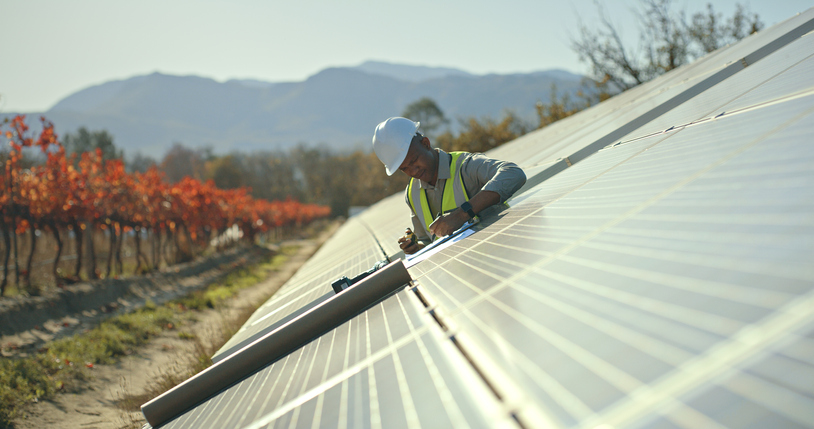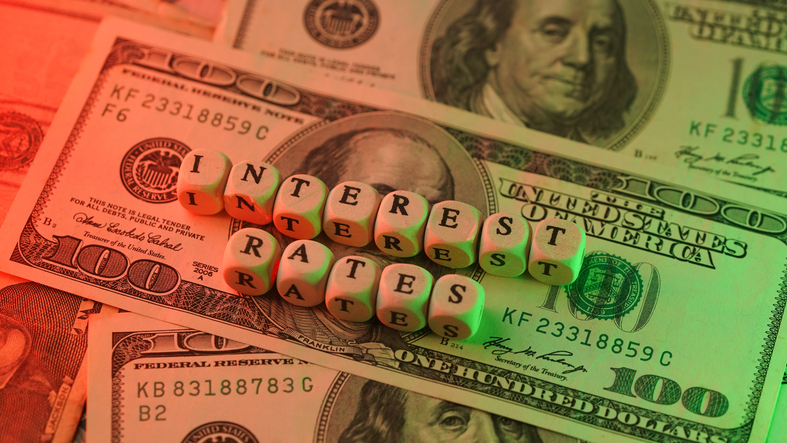Africa’s Vast Solar and Mineral Resources at Risk of Being Left Untapped, IEA Warns
High costs have put off most investors from buying into the continent’s plentiful clean-energy reserves
Energy investment in Africa needs to more than double by the end of the decade if the continent is to meet its energy and climate goals. However, high costs are putting off much-needed investment in the region’s plentiful clean-energy resources and huge reserves of critical minerals, the International Energy Agency said.
“African countries have huge energy potential, including a spectacular range and quality of renewable-energy resources,” said Fatih Birol, executive director of the Paris-based agency in a report published jointly with the African Development Bank on Wednesday. “But these riches are largely untapped and they will remain so without greatly improved access to capital.”
Africa is home to more than half of the world’s best solar resources as well as possessing great potential for hydroelectric and wind-power projects, according to the IEA. It is also uniquely placed to contribute to industries behind the transition away from fossil fuels. It accounts for 80% of the world’s platinum reserves, half of all cobalt reserves, and 40% of manganese reserves, all of which are expected to be crucial to technologies such as autocatalysts and electric batteries, the agency said.
The report’s figures also pose a challenge for the West and the U.S. in particular, which is seeking to secure diverse sources of critical materials. In recent years, the West has lost clout in Africa as China has become the continent’s largest trading partner and fourth largest investor. Much of China’s investment in Africa goes toward energy projects and the nation’s lead in renewable technologies will likely see it grow as a funder of African renewable energy projects, the IEA said.
“Energy investment on our continent has fallen short,” wrote William Ruto, president of Kenya, in the report’s foreword. “It is imperative we take bold steps to more than double energy investment here in the next decade, with a primary focus on clean energy.”
From around $90 billion today, annual spending on Africa’s energy needs must more than double to $200 billion by 2030, two-thirds of which will need to go toward clean energy projects, the report said.
Despite the investment goal—which the IEA says will allow African nations to meet their agreed climate targets as laid out in the Paris Agreement and achieve universal access to modern energy systems—energy spending in Africa has been falling over the past five years as investment in fossil fuels has declined and spending on renewable energy projects has flatlined. The continent makes up just 3% of global energy spending.
The indebtedness of many African nations is holding back public spending on energy projects while private investors are reluctant to invest because of a prevalence of fragile states, absent regulations and perceptions of political or reputational risks.
All of these are pushing up the cost of capital which makes many African energy projects financially unviable despite ample local resources and proven technologies such as wind or solar power, the report said.
The cost of capital for a large-scale renewable energy project in Africa is up to three times higher than in advanced economies and China, the IEA said. For smaller projects, which will be crucial in rural areas, the costs are even higher.
Concessional financing—in which lenders such as international development banks offer developing nations more generous terms such as lower interest rates or longer repayment periods—will be crucial to overcoming those obstacles, the IEA said.
The IEA estimates that only half of electricity grid projects in Africa are commercially viable without such assistance, while most clean cooking projects would be unaffordable.
Despite accounting for 20% of the global population, investment in African energy projects is far too small, leaving much of the continent lacking basic access to electricity or clean cooking fuels, the IEA said.
Currently, 600 million people across Africa lack access to electricity and almost one billion have no access to clean cooking fuels.
$25 billion a year alone would be enough to provide basic access to electricity and clean cooking fuels to all Africans, equivalent to the cost of installing one LNG terminal, something European nations have done in record time following Russia’s invasion of Ukraine.
The report came as African leaders met in Nairobi for the third and final day of the Africa Climate Summit, which has seen calls for debt relief for African nations facing the effects of climate change and hundreds of millions of dollars pledged to Africa’s nascent carbon credits initiative.
African nations are seeking redress for the effects of climate change they experience despite contributing little to carbon emissions, the main driver of global warming. The continent accounts for around 2% to 3% of global carbon emissions but is particularly exposed to extreme weather.
 Copyright 2020, Dow Jones & Company, Inc. All Rights Reserved Worldwide. LEARN MORE
Copyright 2020, Dow Jones & Company, Inc. All Rights Reserved Worldwide. LEARN MORE
This stylish family home combines a classic palette and finishes with a flexible floorplan
Just 55 minutes from Sydney, make this your creative getaway located in the majestic Hawkesbury region.
Continued stagflation and cost of living pressures are causing couples to think twice about starting a family, new data has revealed, with long term impacts expected
Australia is in the midst of a ‘baby recession’ with preliminary estimates showing the number of births in 2023 fell by more than four percent to the lowest level since 2006, according to KPMG. The consultancy firm says this reflects the impact of cost-of-living pressures on the feasibility of younger Australians starting a family.
KPMG estimates that 289,100 babies were born in 2023. This compares to 300,684 babies in 2022 and 309,996 in 2021, according to the Australian Bureau of Statistics (ABS). KPMG urban economist Terry Rawnsley said weak economic growth often leads to a reduced number of births. In 2023, ABS data shows gross domestic product (GDP) fell to 1.5 percent. Despite the population growing by 2.5 percent in 2023, GDP on a per capita basis went into negative territory, down one percent over the 12 months.
“Birth rates provide insight into long-term population growth as well as the current confidence of Australian families,” said Mr Rawnsley. “We haven’t seen such a sharp drop in births in Australia since the period of economic stagflation in the 1970s, which coincided with the initial widespread adoption of the contraceptive pill.”
Mr Rawnsley said many Australian couples delayed starting a family while the pandemic played out in 2020. The number of births fell from 305,832 in 2019 to 294,369 in 2020. Then in 2021, strong employment and vast amounts of stimulus money, along with high household savings due to lockdowns, gave couples better financial means to have a baby. This led to a rebound in births.
However, the re-opening of the global economy in 2022 led to soaring inflation. By the start of 2023, the Australian consumer price index (CPI) had risen to its highest level since 1990 at 7.8 percent per annum. By that stage, the Reserve Bank had already commenced an aggressive rate-hiking strategy to fight inflation and had raised the cash rate every month between May and December 2022.
Five more rate hikes during 2023 put further pressure on couples with mortgages and put the brakes on family formation. “This combination of the pandemic and rapid economic changes explains the spike and subsequent sharp decline in birth rates we have observed over the past four years,” Mr Rawnsley said.
The impact of high costs of living on couples’ decision to have a baby is highlighted in births data for the capital cities. KPMG estimates there were 60,860 births in Sydney in 2023, down 8.6 percent from 2019. There were 56,270 births in Melbourne, down 7.3 percent. In Perth, there were 25,020 births, down 6 percent, while in Brisbane there were 30,250 births, down 4.3 percent. Canberra was the only capital city where there was no fall in the number of births in 2023 compared to 2019.
“CPI growth in Canberra has been slightly subdued compared to that in other major cities, and the economic outlook has remained strong,” Mr Rawnsley said. “This means families have not been hurting as much as those in other capital cities, and in turn, we’ve seen a stabilisation of births in the ACT.”
This stylish family home combines a classic palette and finishes with a flexible floorplan
Just 55 minutes from Sydney, make this your creative getaway located in the majestic Hawkesbury region.






















